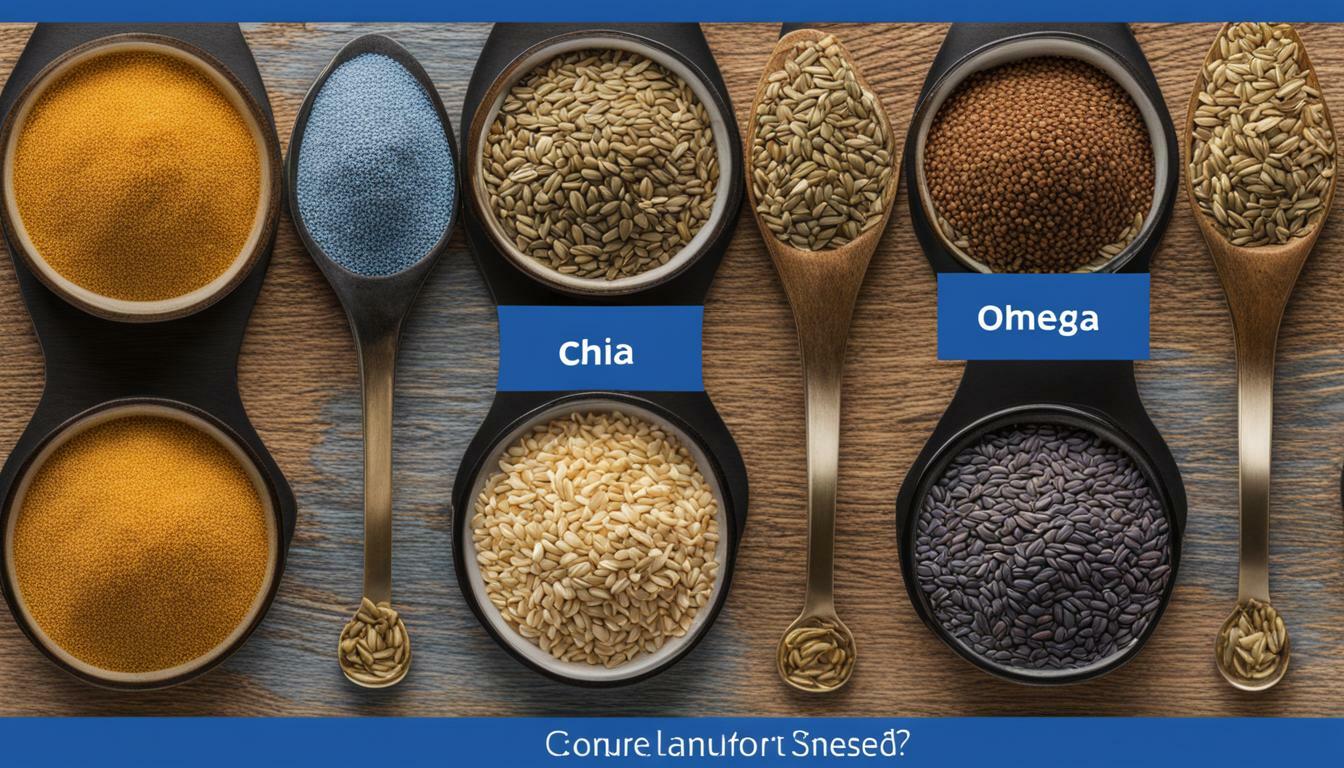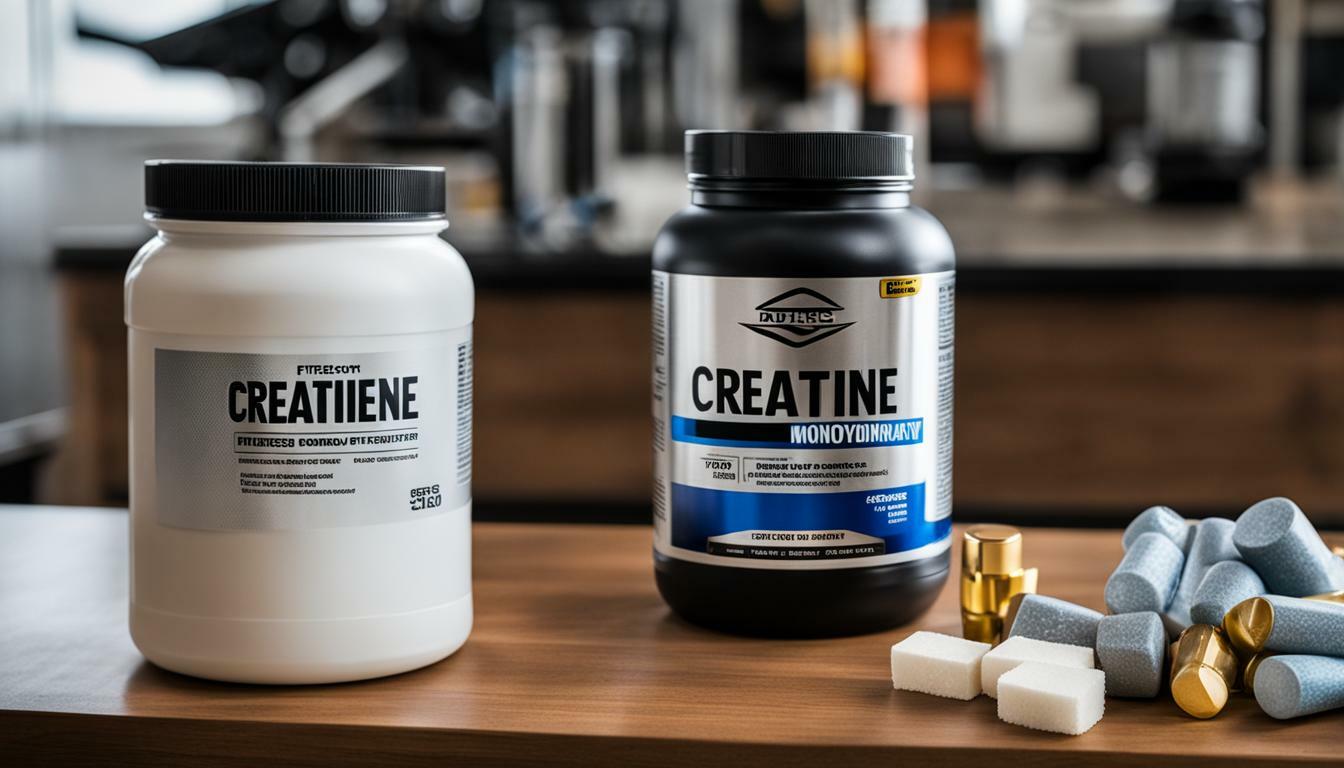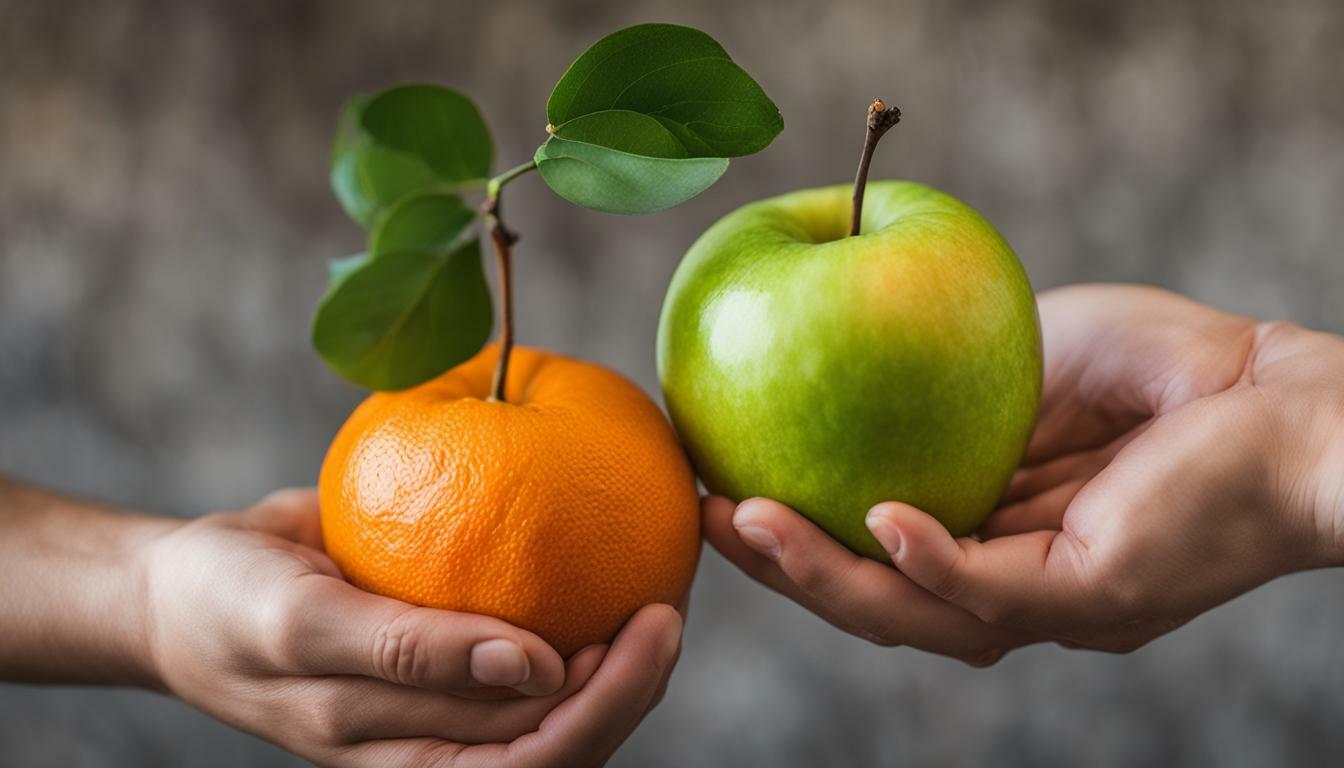Glucose and fructose are two common types of sweeteners used in various food and beverage products. While they both belong to the category of simple sugars, they have different effects on the body. Understanding the differences between glucose and fructose sweeteners is important for making informed choices about your sugar intake and overall health.
Here, we will explore the key disparities between glucose and fructose sweeteners, including their impact on health and their uses in sweetening products. By gaining a better understanding of these differences, you can make more informed decisions when it comes to selecting sweeteners for your diet.
Key Takeaways:
- Glucose is the body’s preferred source of energy and is quickly absorbed into the bloodstream.
- Fructose is metabolized in the liver and can lead to the production of fat and increased triglyceride levels when consumed in excess.
- Consuming excess fructose from processed foods and beverages has been linked to various health issues, including obesity, type 2 diabetes, and fatty liver disease.
- It is recommended to limit added sugar intake and focus on consuming whole and unprocessed foods for better health outcomes.
What is Glucose?
Glucose is a simple sugar that serves as the body’s primary source of energy and is found naturally in many foods. It is a key component of carbohydrates and can be broken down through digestion to provide fuel for the body’s cells.
When consumed, glucose is quickly absorbed into the bloodstream, where it can be used immediately by cells for energy or stored as glycogen in the liver and muscles for future use. This quick absorption and utilization make glucose an efficient source of energy.
Glucose is naturally present in various foods, including fruits, vegetables, and grains. It can also be found in sweeteners derived from these sources, such as honey and maple syrup. While glucose is a natural sweetener, it is important to be mindful of the overall intake of added sugars, including glucose, for optimal health.
Fun Fact: Did you know that glucose is often referred to as “blood sugar” since it is the primary sugar circulating in the bloodstream?
| Glucose Sources | Examples |
|---|---|
| Fruits | Apples, oranges, bananas |
| Vegetables | Carrots, sweet potatoes, beets |
| Grains | Oats, rice, quinoa |
| Other Sources | Honey, maple syrup |
In summary, glucose is a natural sweetener and the body’s preferred source of energy. It is found in various foods and can be used immediately or stored for later use. While glucose is an essential part of a balanced diet, it is recommended to be mindful of overall added sugar intake and prioritize whole, unprocessed foods for optimal health.
What is Fructose?
Fructose is another type of simple sugar that is naturally occurring in fruits, honey, and certain vegetables. It is also commonly used as a sweetener in processed foods and beverages. While fructose is naturally present in whole foods in relatively small amounts, it is often consumed in excess through added sugars like high-fructose corn syrup.
When consumed in moderate amounts from whole foods, fructose is generally well-tolerated by the body. However, excessive intake of fructose, particularly from processed sources, can have negative health effects. The liver is the primary site for fructose metabolism, and when consumed in excess, it can lead to the production of fat and increased triglyceride levels.
Studies have linked high fructose intake to various health issues, including obesity, type 2 diabetes, and fatty liver disease. Additionally, consuming excess fructose may increase feelings of hunger and lead to cravings for more sugary foods. This can potentially contribute to an unhealthy cycle of overconsumption and negative health outcomes.
It is important to limit added sugar intake, including fructose, and focus on consuming whole and unprocessed foods. By choosing natural sweeteners found in fruits and vegetables, you can enjoy the sweetness while minimizing the potential health risks associated with processed fructose sweeteners. Incorporating a variety of whole foods into your diet can provide essential nutrients and fiber, which can help balance blood sugar levels and promote overall health.
Metabolism and Absorption
Glucose is quickly absorbed into the bloodstream and used as immediate energy or stored for later use as glycogen, while fructose is primarily metabolized in the liver. This difference in metabolism can have significant implications for overall health and well-being.
When glucose enters the bloodstream, it stimulates the release of insulin from the pancreas, which helps to regulate blood sugar levels. This rapid absorption and utilization of glucose make it an efficient source of energy for the body. In contrast, fructose is metabolized differently. It is primarily metabolized in the liver, where it can be converted into fat and stored. This process can increase triglyceride levels and contribute to the development of conditions such as obesity and fatty liver disease.
It is important to note that the metabolism and absorption of glucose and fructose can be influenced by various factors, such as the presence of other nutrients and the overall composition of a meal. Additionally, excessive consumption of both glucose and fructose can have negative health effects. It is recommended to limit added sugar intake and focus on consuming whole and unprocessed foods to reduce reliance on added sweeteners.
Table
| Glucose | Fructose |
|---|---|
| Quickly absorbed into the bloodstream | Primarily metabolized in the liver |
| Used as immediate energy or stored as glycogen | Converted into fat and stored |
| Stimulates insulin release | Does not stimulate insulin release as significantly |
In summary, glucose and fructose have distinct metabolic pathways in the body. Glucose is quickly absorbed into the bloodstream and used as immediate energy or stored for later use, while fructose is primarily metabolized in the liver and can contribute to the production of fat. Consumption of both glucose and fructose should be moderated, and a focus on whole, unprocessed foods is recommended for overall health and well-being.
Health Effects of Glucose Sweeteners
While glucose is vital for providing energy to the body, excessive consumption of glucose sweeteners can have negative health effects. Glucose is rapidly absorbed into the bloodstream, causing a spike in blood sugar levels. This can lead to a variety of health issues, including weight gain, increased risk of developing type 2 diabetes, and cardiovascular problems.
According to research, high consumption of glucose sweeteners, especially those found in processed foods and beverages, has been associated with an increased risk of obesity. These sweeteners provide empty calories and little to no nutritional value. They can also contribute to the development of insulin resistance, a condition in which the body’s cells become less responsive to the effects of insulin, leading to elevated blood sugar levels.
It is important to note that not all sweeteners containing glucose are equally damaging to health. Some glucose sweeteners, such as those derived from natural sources like fruits, can be part of a balanced diet when consumed in moderation. However, it is recommended to limit the intake of added sugars and focus on consuming whole and unprocessed foods to minimize the negative effects on health.
| Sweetener | GI (Glycemic Index) |
|---|---|
| Honey | 55 |
| Maple Syrup | 54 |
| Coconut Sugar | 35 |
When looking for low glycemic sweetener options, consider alternatives like honey, maple syrup, and coconut sugar. These natural sweeteners have a lower glycemic index compared to glucose sweeteners, meaning they have a slower impact on blood sugar levels and provide a more sustained release of energy. However, it is still essential to consume them in moderation as part of a balanced diet.
How to Reduce Glucose Sweetener Consumption
- Avoid processed foods and beverages that contain high amounts of added glucose sweeteners.
- Read food labels carefully to identify hidden sources of glucose sweeteners.
- Choose natural sweeteners, such as honey or maple syrup, as alternatives to processed glucose sweeteners. These options provide additional nutrients and have a lower impact on blood sugar levels.
- Gradually reduce your overall intake of sweetened foods and beverages to lower dependence on glucose sweeteners.
- Focus on consuming a varied diet rich in whole and unprocessed foods to minimize the need for added sweeteners.
“Excessive consumption of glucose sweeteners, especially those found in processed foods and beverages, has been associated with an increased risk of obesity and the development of insulin resistance.”
Health Effects of Fructose Sweeteners
Fructose sweeteners, especially those derived from processed foods and beverages, have been linked to various health issues. When consumed in excess, fructose metabolism primarily occurs in the liver leading to the production of fat and increased triglyceride levels. This can contribute to the development of obesity, type 2 diabetes, and fatty liver disease.
Furthermore, the high intake of fructose sweeteners has been associated with increased feelings of hunger and sugar cravings. This can create a cycle of overconsumption, leading to further health complications. It is important to note that these negative health effects are primarily attributed to the consumption of fructose sweeteners found in processed foods and beverages, particularly those containing high-fructose corn syrup.
To promote better health, it is recommended to limit overall added sugar intake, including fructose sweeteners. Instead, focus on consuming whole and unprocessed foods that provide natural sugars in addition to essential nutrients. By choosing whole foods as a source of sweetness, you can reduce reliance on added sweeteners and enjoy the benefits of a more balanced and nutritious diet.
In summary, while glucose is the body’s preferred source of energy, fructose sweeteners derived from processed foods can have detrimental effects on health. By being mindful of your sugar intake and opting for whole foods, you can make positive choices that support your overall well-being.
| Health Effects of Fructose Sweeteners | Processed Sweeteners |
|---|---|
| Link to various health issues such as obesity, type 2 diabetes, and fatty liver disease | Primarily found in processed foods and beverages |
| Metabolized in the liver, leading to fat production and increased triglyceride levels | High-fructose corn syrup is a common source of fructose sweeteners in processed foods |
| Increase feelings of hunger and sugar cravings | Associated with overconsumption and potential negative health consequences |
| Limit overall added sugar intake and opt for whole and unprocessed foods | Choose natural sources of sweetness to reduce reliance on processed sweeteners |
Impact on Weight and Metabolic Health
The consumption of both glucose and fructose sweeteners, particularly in excessive amounts, has been linked to negative effects on weight and metabolic health. Glucose, being the body’s preferred source of energy, is quickly absorbed into the bloodstream and can be used immediately or stored as glycogen for future use. However, when consumed in excess, glucose can contribute to weight gain and the development of metabolic disorders.
Fructose, on the other hand, is metabolized in the liver and has been found to have a more detrimental impact on weight and metabolic health. Excessive consumption of fructose, particularly from processed foods and beverages containing high-fructose corn syrup, has been associated with increased fat production, elevated triglyceride levels, and the development of conditions such as obesity, type 2 diabetes, and fatty liver disease.
In addition to its direct effects, fructose may also contribute to the cycle of constant hunger and sugar cravings. The consumption of fructose can disrupt the hormones that regulate appetite, leading to increased hunger and a greater likelihood of overeating. This can further contribute to weight gain and metabolic imbalances.
“The consumption of both glucose and fructose sweeteners, particularly in excessive amounts, has been linked to negative effects on weight and metabolic health.”
Given the potential negative impact on weight and metabolic health, it is important to limit the intake of added sugars, including glucose and fructose sweeteners. Instead, it is advisable to focus on consuming whole and unprocessed foods that provide essential nutrients without the added sugars. By choosing natural sweeteners, such as fruits or small amounts of natural honey or maple syrup, individuals can moderate their sugar intake while still satisfying their sweet tooth.
| Sweetener | Health Effects |
|---|---|
| Glucose | In moderate amounts, glucose from natural sources can provide energy. Excessive consumption can lead to weight gain and metabolic issues. |
| Fructose | Excessive consumption, especially from processed foods, has been associated with weight gain, elevated triglyceride levels, and metabolic disorders. |
| Natural Sweeteners | Choosing natural sweeteners such as fruits, natural honey, or maple syrup can help reduce added sugar intake while providing essential nutrients. |
Choosing the Right Sweetener
When it comes to sweetening products, it’s important to make informed choices that prioritize natural sweeteners and avoid excessive consumption of processed options. Natural sweeteners, such as honey, maple syrup, and stevia, provide a better alternative to processed sweeteners like high-fructose corn syrup and artificial sweeteners. These natural sweeteners not only add sweetness to recipes but also contain beneficial nutrients and antioxidants.
One way to compare sweeteners is by their glycemic index (GI), which measures how quickly a food raises blood sugar levels. Low glycemic sweeteners, like coconut sugar and agave nectar, have a slower impact on blood sugar levels compared to high glycemic sweeteners, such as table sugar and glucose syrup. Choosing low glycemic sweeteners can help maintain stable blood sugar levels and reduce the risk of insulin resistance and type 2 diabetes.
The Sweetener Comparison Table
| Sweetener | Glycemic Index (GI) | Benefits | Drawbacks |
|---|---|---|---|
| Honey | 58 | Antioxidant properties Rich in vitamins and minerals |
High in calories May cause tooth decay in excess |
| Maple Syrup | 54 | Nutritious Contains antioxidants |
High in sugar Expensive compared to other sweeteners |
| Stevia | 0 | Zero-calorie Does not raise blood sugar levels |
May have a bitter aftertaste for some |
In addition to considering the glycemic index, it’s important to be mindful of the overall consumption of sweeteners. While natural sweeteners can be a healthier choice, they should still be used in moderation. Even though they may have some health benefits, excessive intake can still contribute to weight gain and other health issues. It’s always a good idea to focus on consuming whole and unprocessed foods while reducing the reliance on added sweeteners.
By choosing natural sweeteners with a lower glycemic index and using them in moderation, you can enjoy the sweetness of your favorite foods and beverages while making healthier choices for your overall well-being.
The Role of Whole Foods
Incorporating whole foods into the diet can help reduce the need for added sweeteners and promote better overall health. Whole foods, such as fruits, vegetables, whole grains, and legumes, contain natural sugars that are accompanied by essential nutrients like fiber, vitamins, and minerals. These nutrients not only support the body’s functioning but also slow down the absorption of sugars, preventing spikes in blood sugar levels.
When compared to processed sweeteners, which often contain high levels of glucose or fructose, natural sweeteners found in whole foods have a gentler impact on blood sugar and insulin levels. For example, the fructose found in whole fruits, like apples or berries, is accompanied by fiber, which helps regulate digestion and slows down the release of sugars into the bloodstream. This slower release of sugars provides sustained energy and minimizes the risk of insulin resistance, type 2 diabetes, and weight gain.
Furthermore, whole foods are generally more satiating than processed foods. The fiber and water content in whole fruits and vegetables, for instance, contribute to feelings of fullness, making it less likely for individuals to reach for additional sweetened snacks or beverages. By choosing whole foods as the main source of sweetness, individuals can naturally satisfy their cravings while avoiding the negative health effects associated with excessive consumption of glucose or fructose sweeteners.
Table: Comparison of Glucose and Fructose Sweeteners
| Sweetener Type | Metabolism | Health Implications |
|---|---|---|
| Glucose | Metabolized quickly | Can be used as immediate energy or stored as glycogen; excess consumption may contribute to weight gain and other health issues |
| Fructose | Metabolized in liver | In excess, may lead to fat production, increased triglyceride levels, obesity, type 2 diabetes, fatty liver disease, increased hunger, and cravings |
In conclusion, the role of whole foods in reducing reliance on added sweeteners cannot be overstated. By embracing a diet rich in whole fruits, vegetables, whole grains, and legumes, individuals can enjoy the natural sweetness they provide while reaping the benefits of essential nutrients and fiber. Choosing whole foods over processed sweeteners can help maintain steady blood sugar levels, support weight management, and promote overall health and wellbeing.
Conclusion
Understanding the difference between glucose and fructose sweeteners is crucial for making informed decisions about their consumption, and opting for low glycemic sweetener alternatives can be beneficial for overall health.
Glucose, the body’s preferred energy source, is quickly absorbed into the bloodstream and can be used immediately or stored for later use. However, excessive consumption of fructose, particularly from processed foods and beverages, can lead to the production of fat and increased triglyceride levels in the liver.
Studies have linked the overconsumption of fructose to various health issues, including obesity, type 2 diabetes, and fatty liver disease. Additionally, fructose has been found to increase feelings of hunger and sugar cravings, potentially contributing to unhealthy eating habits.
To promote overall health, it is recommended to limit added sugar intake and focus on consuming whole and unprocessed foods. Natural sweeteners, such as stevia or monk fruit extract, can be low glycemic alternatives that provide sweetness without the negative health effects associated with glucose and fructose sweeteners found in processed foods.
FAQ
Q: What is the difference between glucose and fructose sweeteners?
A: Glucose and fructose are both simple sugars, but they have different effects on the body. Glucose is the body’s preferred source of energy and is quickly absorbed into the bloodstream. Fructose, on the other hand, is metabolized in the liver and can lead to fat production and increased triglyceride levels when consumed in excess.
Q: What is glucose?
A: Glucose is a simple sugar and the body’s preferred source of energy. It is quickly absorbed into the bloodstream and can be used immediately or stored as glycogen for future use.
Q: What is fructose?
A: Fructose is a simple sugar that is metabolized in the liver. It differs from glucose in how it is processed by the body and can contribute to fat production and increased triglyceride levels when consumed in excess.
Q: How are glucose and fructose metabolized and absorbed?
A: Glucose is quickly absorbed into the bloodstream and used for energy or stored as glycogen. Fructose, on the other hand, is metabolized in the liver and can lead to fat production and increased triglyceride levels.
Q: What are the health effects of glucose sweeteners?
A: Glucose sweeteners can provide a quick source of energy, but excessive consumption may have potential risks. It is important to consider low glycemic sweetener options and moderate intake.
Q: What are the health effects of fructose sweeteners?
A: Fructose sweeteners, particularly those found in processed foods and beverages, have been linked to various health issues, including obesity, type 2 diabetes, and fatty liver disease. It is important to be mindful of their consumption and consider natural sweetener alternatives.
Q: How do glucose and fructose sweeteners impact weight and metabolic health?
A: Excessive consumption of both glucose and fructose sweeteners can contribute to weight gain and metabolic health issues. It is important to be mindful of added sugar intake and prioritize whole and unprocessed foods.
Q: How do I choose the right sweetener?
A: When choosing a sweetener, consider factors such as health effects, natural options, and avoiding processed sweeteners. It is recommended to choose low glycemic sweetener alternatives.
Q: What is the role of whole foods in reducing reliance on sweeteners?
A: Consuming whole and unprocessed foods can help reduce the need for added sweeteners, while also providing potential health benefits. Natural sweeteners can be a healthier option when consumed in moderation.
Q: What is the conclusion on the choice between glucose and fructose sweeteners?
A: It is important to be mindful of added sugar intake and focus on consuming whole and unprocessed foods. Considering low glycemic sweetener options and minimizing reliance on processed sweeteners is recommended for optimal health.



